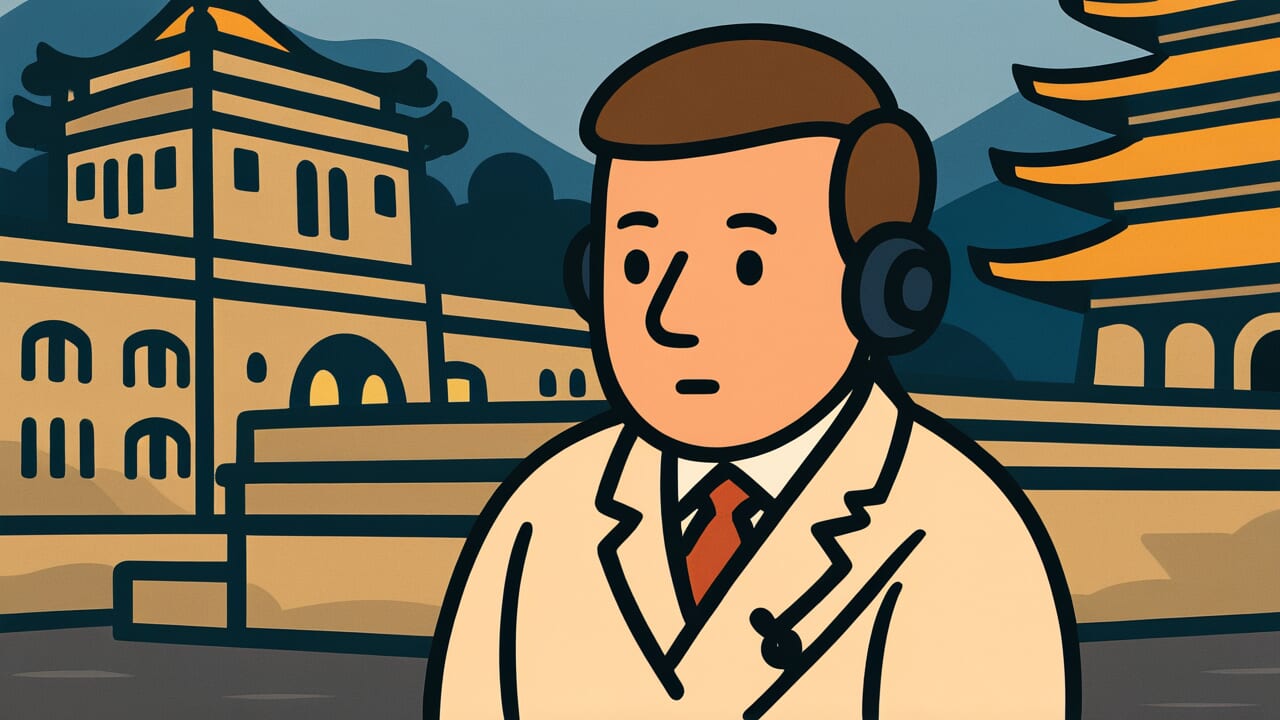How to Read “Even the emperor’s palace is talked about behind closed doors”
Gosho dairi no koto mo kage de wa iu
Meaning of “Even the emperor’s palace is talked about behind closed doors”
This proverb means that no matter how powerful or respected a person or place is, people will still criticize and gossip about them in private.
If even the emperor’s palace gets talked about behind closed doors, then everyone and everything below that level will certainly be discussed too.
People act polite and respectful in public. They show proper respect for authority figures.
But when no one is watching, they speak their true feelings. They share criticisms and complaints freely.
This proverb calmly observes this two-faced nature of human behavior.
Today, we use this saying when powerful people, celebrities, or big companies get praised publicly but criticized privately.
It also reminds us that anyone can become the target of gossip. This helps us stay humble no matter what position we hold.
Origin and Etymology
No clear historical records explain the exact origin of this proverb. However, we can learn a lot from examining the words themselves.
“Gosho” means the emperor’s residence. “Dairi” also refers to the emperor’s private living quarters.
By combining these two words, the proverb emphasizes the most sacred and awe-inspiring place in Japan.
From the Heian period through the Edo period, the emperor and imperial court symbolized absolute authority.
For centuries, openly criticizing the palace was unthinkable. It could even be dangerous.
Yet the proverb adds “talked about behind closed doors.” Even the most sacred place became a topic of private conversation.
This reveals a human reality. People acted respectfully in public, but they had an unstoppable urge to speak their true thoughts in private.
This proverb likely emerged during times of strict social hierarchy and speech control.
It expresses a universal truth about human society. If even the highest authority gets gossiped about, then nothing else is exempt.
This wisdom has been passed down through generations because it captures something timeless about human nature.
Usage Examples
- That company is the industry leader, but even the emperor’s palace is talked about behind closed doors, so apparently their employees have plenty of complaints
- No matter how respectable someone is, even the emperor’s palace is talked about behind closed doors, so maintaining a perfect reputation is impossible
Universal Wisdom
This proverb teaches us about the eternal gap between authority and people’s true feelings.
Human societies always create hierarchies and authority structures. But no matter how powerful these become, they cannot completely control what people think and feel inside.
Why do people talk behind closed doors? Because there’s a gap between the attitudes society demands and what they truly feel in their hearts.
To function in society, we sometimes hide our true feelings. We behave according to what each situation requires.
But suppressed honest feelings don’t disappear. They seek expression somewhere. That’s what “talking behind closed doors” really is.
This proverb has survived through the ages because this two-faced nature is a universal human trait.
Even under the strictest control, people find ways to secretly share their true thoughts. This represents humanity’s thirst for freedom and also our wisdom for surviving as social beings.
The proverb also warns those in power. Just because people respect you outwardly doesn’t mean it comes from the heart.
True trust requires more than authority or position. It demands genuine integrity as a human being.
When AI Hears This
The closer you get to the center of power, the more information diversity actually decreases. Information theory explains this fascinating phenomenon.
Information entropy measures how unpredictable information is. When you roll a dice, six outcomes are possible, so entropy is high.
But with a loaded dice that only shows one, entropy drops to zero.
Inside the palace, everyone watches the ruler’s face and carefully chooses their words. Speech patterns become limited, and information entropy drops extremely low.
Only predictable words like “wonderful” and “I agree” circulate in this closed system.
But behind closed doors, away from power, the situation reverses completely. Criticism and praise, truth and rumor—all information flows without constraint.
Speech becomes unpredictable, and information entropy maximizes. Ironically, the power center that should have the most information becomes informationally poorest.
Meanwhile, the powerless periphery becomes informationally richest.
This inverse correlation reveals a structural trap. Power simplifies its own information environment through control, ultimately distancing itself from truth.
Lessons for Today
This proverb teaches modern people two important perspectives.
First is the importance of humility. No matter what position you hold or how excellent your work is, someone will criticize you.
This is unavoidable reality. Don’t get too happy or sad about surface-level evaluations.
Walk your path with integrity. Don’t seek perfect reputation. Instead, develop the capacity to accept criticism gracefully.
Second is understanding others. Knowing that people have different public and private faces helps you avoid judging others by surface attitudes alone.
Just as you get criticized behind closed doors, you probably criticize others too. This awareness leads to compassion.
Modern society makes “private voices” visible through social media. This makes the proverb’s wisdom even more necessary.
Don’t fear criticism too much, but don’t become arrogant either. Just remain sincere. That’s the way of life this proverb points toward.



Comments